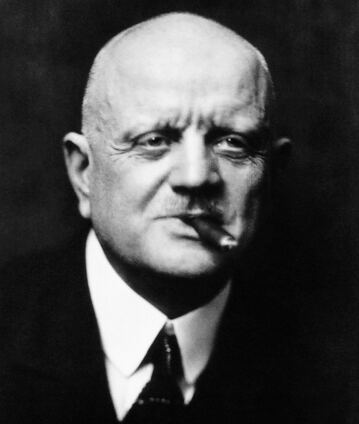Jean Sibelius
Compositeur
Lorsque son Ouverture en mi majeur et sa Scène de ballet le font connaître à Vienne, Jean Sibelius a 25 ans et ces deux œuvres sont les premières qu’il compose pour ce qui va devenir son principal moyen d’expression : l’orchestre. Jusque là, pendant ses études à Helsinki et à Berlin, il n’a écrit que des mélodies et de la musique de chambre. Désormais, il va être considéré comme le plus grand symphoniste de Finlande, un artiste dont les œuvres n’ont rien à envier à celles de ses célèbres contemporains Gustav Mahler ou Richard Strauss.
La vie du compositeur finlandais se distingue par ses contradictions : Johan Christian Julius Sibelius, qui favorisera plus tard la version française de son surnom Janne, est né le 8 décembre 1865 dans la petite ville de Hämeenlinna, où il grandit dans une famille suédophone. Cette région du sud de la Finlande fait pourtant officiellement partie de la Russie en tant que grand-duché autonome. À partir de 1880, Sibelius prend des leçons de violon et souhaite embrasser une carrière de virtuose. Mais une blessure au coude droit va l’obliger à renoncer. À l’Institut de musique récemment fondé par Martin Wegelius (l’actuelle Académie Sibelius), il se tourne vers la composition, qui devient rapidement le centre de son activité artistique. À 23 ans, Sibelius entre dans la classe d’Albert Becker au conservatoire privé dirigé par Xaver Scharwenka à Berlin. Dans la capitale impériale allemande, il rencontre sa future épouse, Aino Järnefelt ; après un autre séjour d’études à Vienne et la création de sa symphonie Kullervo, ils se marient. Au cours des années suivantes, Sibelius enseigne à l’Académie d’orchestre de Kajanus et à l’Institut de musique de Wegelius. Il refuse d’autres postes d’enseignant à Vienne et Rochester, préférant consacrer son temps à composer des œuvres aussi célèbres que son Concerto pour violon. Malgré ses brillants succès, Sibelius manque de confiance et doute de ses capacités, ce qu’il tente d’oublier en se réfugiant dans l’alcool. Après avoir achevé sa Symphonie n° 7, il finit par se taire : à l’exception de Trois pièces pour violon et piano, op. 116, imprimées en 1929, plus aucune œuvre de Sibelius ne sera publiée jusqu’à sa mort le 20 septembre 1957 – une grande perte pour l’histoire de la musique.